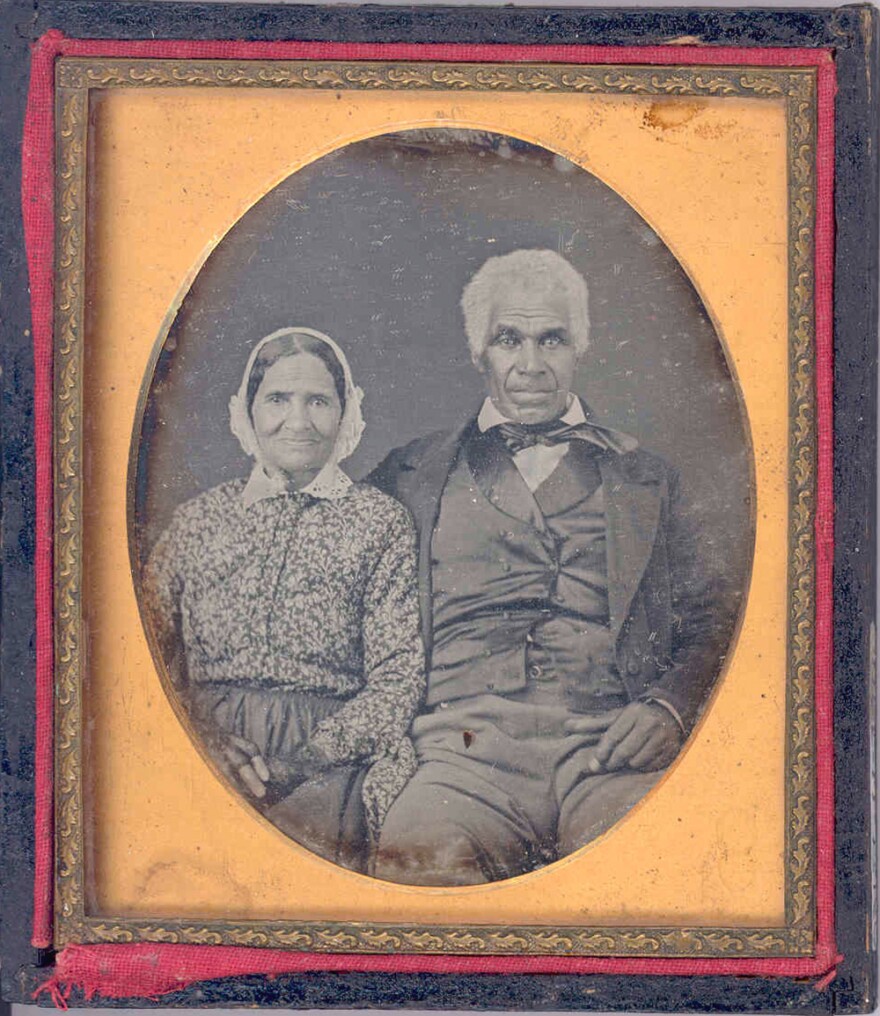
America’s Great Migration between World War I and II brought millions of Southerners, both black and white, to places like Michigan to escape the economic entrenchment of the former Confederate States. But this influx of black Michiganders was not the first group to settle in The Mitten.
Angelica Roberts is an artist in Kalamazoo County whose great-great-great grandparents Enoch and Deborah Harris were some of the first settlers of African descent in the Genesee Prairie of the Northwest Territory. The Genesee Prairie was what has now become Kalamazoo County and the Northwest Territory was shaped out of what is now Michigan, Ohio, Illinois, and Indiana. In the late 18th and early 19th centuries, it was a place where many black pioneers settled.
The Northwest Territory was a haven for people of African descent thanks to an ordinance from 1787 that outlawed slavery and allowed black men to vote. Black pioneers lived in as many as 330 settlements in the territory, according to Anna-Lisa Cox, a non-resident Fellow at Harvard University's Hutchins Center for African and African American Research.
Cox’s book The Bone and Sinew of the Land: America’s Forgotten Pioneers and the Struggle for Equality focuses on these black pioneers across the Territory.
“Just as there were young white families or European-descended families that just flung themselves out to the edges of the frontier, there were African-descended families, many of them multi-racial, who came out here before there were others,” said Cox.
Enoch and Deborah Harris were examples of those early pioneers who came before the rest. They owned a large swath of land and ended up with a considerable amount of wealth. Their daughter, Louisa, was the first to be married in Oshtemo township near Kalamazoo, said Roberts.
They were also friends with John Chapman, better known to us as Johnny Appleseed. Enoch and Deborah planted one of the first apple orchards in lower Michigan, which Cox noted as a fairly big moment for Michigan agriculture.
“They are some of our founders in a state that is known for its apple production and yet they are bringing in to the state of Michigan an understanding of apple cultivation on the hundreds of acres they owned,” said Cox.
Roberts has spent her life searching for and preserving the stories of these ancestors whose lives and work helped shape Michigan into the state it is today. To her, it is a labor of love as she uses historical records along with intuition and imagination to piece together the story of those who came before her.
“I was certainly captivated as a child," she said. "I loved hearing the stories, I loved hearing the pieces, and, over the years, in different ways. Either I would go looking for stories or sometimes I felt like they came looking for me.”
This post was written by Stateside production assistant Olive Scott.
Want to support programming like this? Consider making a gift to Michigan Radio today.





